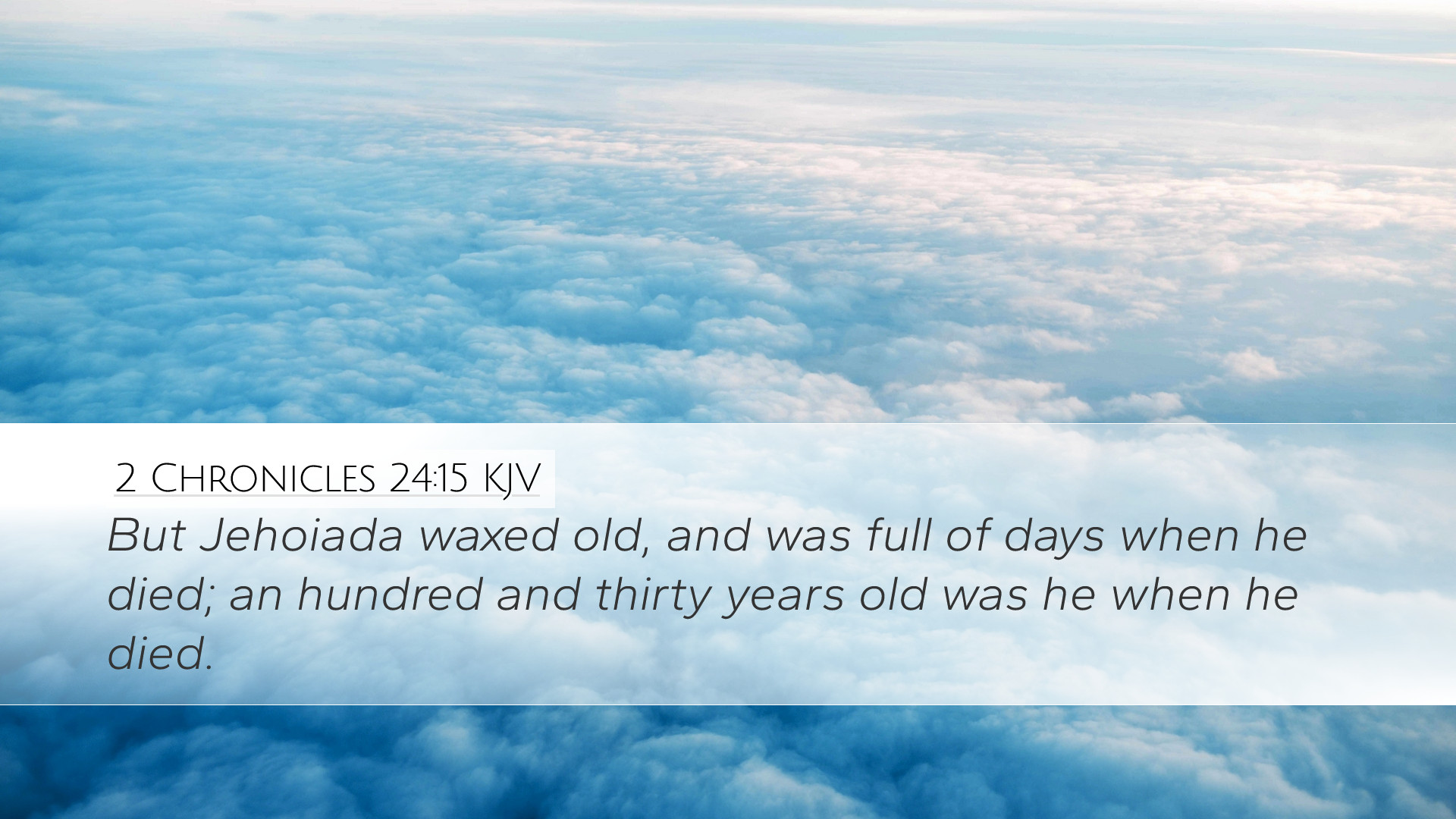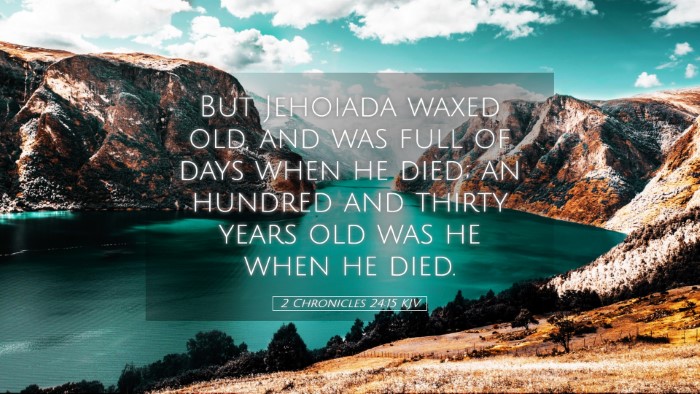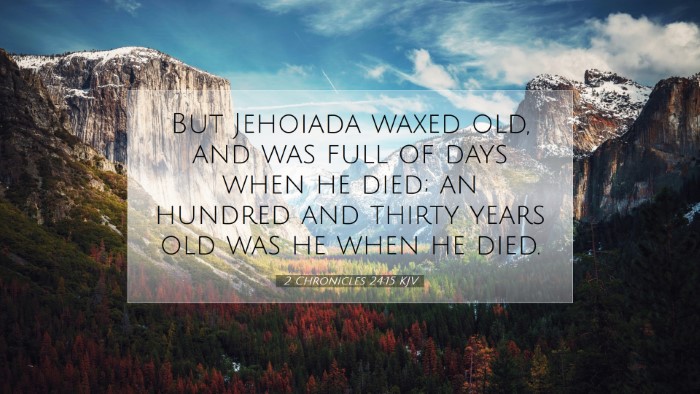Commentary on 2 Chronicles 24:15
Verse: "But Jehoiada grew old and was full of days, and he died; and they buried him in the city of David among the kings, because he had done good in Israel, both toward God and His house."
Introduction
This verse marks a poignant moment in the narrative of Judah's history during the reign of Joash. Jehoiada the high priest played a crucial role in restoring order and fidelity to God’s covenant after a period of dreadful apostasy under Queen Athaliah. The commentary on this verse draws upon learned insights from pivotal public domain commentaries, namely those by Matthew Henry, Albert Barnes, and Adam Clarke.
Contextual Background
The events of 2 Chronicles 24 occur after Jehoiada has engineered a coup against Athaliah and placed Joash on the throne. His leadership brought about a religious revival that influenced the nation's worship practices. Understanding the significance of Jehoiada’s life and death is essential to grasping the themes of leadership, faithfulness, and divine providence that resonate throughout the Chronicles.
Historical Significance
As a leader, Jehoiada was prominent in preserving the lineage of David and re-establishing proper worship in the temple. His death brings an end to an era of revitalization in Judah, highlighting the fragility of reforms based solely on human leaders.
Commentary Insights
Matthew Henry’s Insights
Matthew Henry emphasizes the exemplary qualities of Jehoiada. He notes that Jehoiada "grew old and was full of days," suggesting not just age, but a life fulfilled in service to God. His burial "among the kings" is indicative of his significant impact. Henry remarks that Jehoiada's legacy was one of righteousness, and his death serves as a crucial turning point that the people of Judah would soon forget.
Albert Barnes’ Reflections
Albert Barnes highlights the importance of Jehoiada's contributions toward God and His house. He interprets "good in Israel" as not merely effective governance but a deep commitment to spiritual restoration. Barnes also connects the response of the people, noting the danger of relying on any human leader, for without Jehoiada's guiding hand, the nation may revert to apostasy.
Adam Clarke's Analysis
Adam Clarke delves into the significance of Jehoiada’s burial among the kings, suggesting it underlines the nobility of his character. Clarke remarks that Jehoiada "achieved more for the living God" than many kings of Israel and Judah. His legacy serves as a reminder of the importance of steadfast leadership in society and the eventual consequences that arise from abandoning such leadership.
Theological Implications
The narrative of Jehoiada in 2 Chronicles 24:15 presents several theological themes significant to contemporary readers:
- Leadership and Influence: The life of Jehoiada embodies the notion that righteous leadership influences the moral and spiritual state of a nation. His commitment to God fueled collective reform, reminding today’s leaders of the responsibility they bear.
- God's Sovereignty: Jehoiada’s rise and death within God’s plan illustrate divine providence. His guidance of Joash underlines God's continued faithfulness to His covenant, teaching that God remains sovereign over every event.
- The Fragility of Reforms: The passage foreshadows the failures that follow Jehoiada's death, emphasizing how spiritual revival is vulnerable without sustained commitment from the people and their leaders.
Conclusion
In reflecting on 2 Chronicles 24:15, it is evident that Jehoiada was more than just a high priest; he was a custodian of the covenant between God and His people. As pastors, students, and theologians study this passage, they are invited to explore the intersections of faithful leadership, communal responsibility, and the ever-present need for divine dependence. In understanding Jehoiada's life and impact, there is a challenge to pursue a similar commitment to God's service and legacy within their own contexts.


